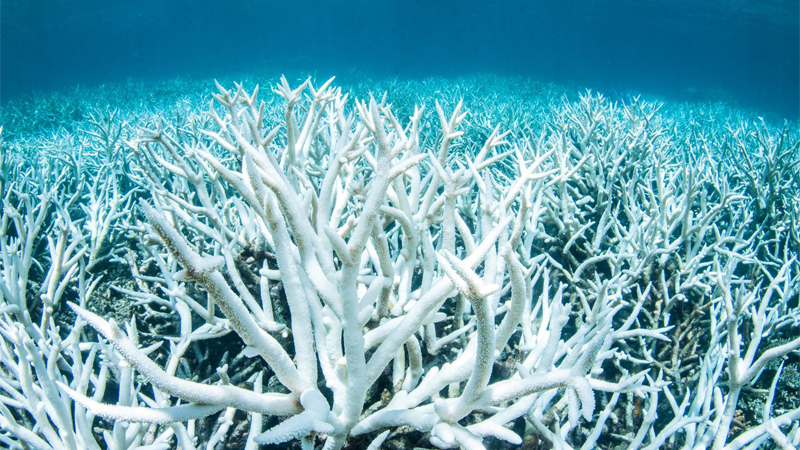|
Coral bleaching caused by climate change is turning the famous wonder white

Alex Chapman | Planet Attractions | 01 Mar 2021

 In 2020 the Great Barrier Reef was hit with its third major bleaching event in five years Credit: Handout In 2020 the Great Barrier Reef was hit with its third major bleaching event in five years Credit: Handout
The marine environment along the coast of the Great Barrier Reef continues to struggle against the effects of climate change, with coral bleaching being the major issues the wonder is facing.
A recent report released by the Queensland Government in Australia judging the condition of the reef has found the overall condition to be poor, with the coral earning a D grade.
The report comes ahead of a World Heritage Committee meeting scheduled for later this year in China.
The Reef Water Quality Report Card suggests that the inshore marine condition has seen improvements to the water quality, but a decline in the quality of coral, while there has been no noticeable change to the quality of the seagrass.
The Great Barrier Reef, which was named a Unesco World Heritage Site in 1981, has seen several mass bleaching events attributed by experts to rising water temperatures.
Mass bleaching has become a significant issue in recent years, with three such instances in 2016, 2017 and most recently in 2020. The most recent of these events falls outside of the timeframe for the report on the reef, however.
Scientists have suggested that the reef has a greater chance of recovering from future bleaching events by further improving the water quality and reducing the amount of sediment, chemicals, and fertilisers that is allowed to flow into it.
Farmers in the Burdekin and Wet Tropics regions have played a big role in improving the water quality. This is according to Sussan Ley and Meaghan Scanlon, the current minister for the environment and minister for the Great Barrier Reef, respectively.
Ley and Scanlon have said that an investment of A$667m (US$517m, €429m, £370m) alongside improved farm practices had also been responsible for the upturn in water quality.
It’s hoped that further improvements can be made in regards to land management, to better the quality of sugar cane farming, grazing, and agriculture.
The Australian Government is hoping to see improvements to the reef soon and expects better results ahead of the next report card scheduled for 2022.
Heritage
|
|






Supplier Showcase 2025: The biggest attractions projects landing worldwide this year
|